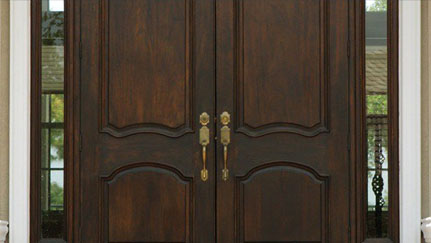
Homes without security systems are two to three times more likely to be broken into, and 62 percent of home burglaries occur during the daytime, between 9 a.m. and 3 p.m. If you have a high-value home with domestic staff, you potentially have the added risk of employee dishonesty and having more people regularly accessing your property.
Nationwide Private Client Risk Solutions provides the following common-sense theft prevention tips to help reduce your chance of being burglarized at home:
Secure your home
- Make sure your home has good quality doors, windows and locks. Consider a central station home security system that is monitored by an alarm company.
- Keep all windows and doors locked whether you are away or home. Ensure that all home alarm systems are turned on at all hours of the day.
- If you have a basement, include motion detectors in your basement and make sure all windows and doors have contact sensors that are also protected by the alarm system.
- Lock your pet doors so they are not a point of entry for thieves.
- Install proper outside lighting. Thieves may choose to bypass a well-lit home.
- Close curtains or blinds to prevent thieves from taking inventory of your personal belongings and seeing the home’s layout.
- Keep garage doors closed and locked. If the garage doors have windows, move the garage door release cord away from those windows.
- Store ladders, tools and other hardware objects in a locked shed or garage so they can’t be used to assist in home entry.
- Make sure your home’s address is visible and easily identifiable by police, firemen and paramedics.
- Keep your family name off the mailbox, house and front gate.
- Take the following steps before placing anything in the garbage:
- Shred all documents with financial and confidential personal information.
- Destroy old computer hard drives.
- Break down all boxes for high-value equipment. Brand names on boxes alert thieves to items inside the house.
- Always require a signature or authorized recipient on packages that are scheduled to be delivered to your home to help prevent thieves from stealing unattended items. Packages left outside can also advertise you are not at home.
Protect your valuables and important documents
- Store lock boxes or safes in a hidden area of the house. The basement or lowest level is recommended to reduce the risk of heat damage from a fire.
- Keep all personal information (passports, financial statements, etc.) in a locked, fire-proof safe or a safety deposit box.
- Store your jewelry in a secure location, i.e., a home safe or bank safety deposit box.
- Take a regular inventory of your jewelry. It can be very useful if you have to file a claim. Keep a list of your jewelry and take photos or video of each item in your collection.
- Get an appraisal to establish or confirm the value of your jewelry pieces.
- Periodically update appraisals for pieces that have been in your collection for many years, including family heirlooms you inherited, to help ensure values are current.
For more tips on how to protect your jewelry and other valuables at home or while traveling, read our other Loss Prevention Tips articles.
Exercise caution online and away from home
- Don’t talk about vacation plans in public areas, such as the beauty salon, shopping mall, car rental office, or online.
- Do not post updates about your travel plans on social media. Post your vacation photos after you return home.
- Secure your wireless network at home. Computer access could allow cyber criminals easy access to confidential personal information.
Screen your domestic staff
- Thoroughly screen all household employees, including nannies, housekeepers, caretakers, personal assistants, caregivers and chauffeurs, who will have access to your home and valuables.
- Conduct background checks before hiring any full-time domestic staff. Be sure to follow Fair Credit Reporting Act (FCRA) guidelines, and have candidates sign a disclosure and release form prior to conducting the background check. Pinkerton (pinkerton.com) provides background check services at a discount to Nationwide Private Client policyholders.
- Talk with your insurance agent about how you might leverage best practices in the hiring and management of your domestic staff to better protect yourself and your family.
If you have any questions, please contact your agent or Nationwide Private Client Risk Solutions professional. For more information on how you can help prevent losses, visit nationwide.com/solutionseries.
We offer this information to assist you in making decisions that can help mitigate your risk. While we cannot address every possible scenario or guarantee these tips will work for you, our goal is to support your efforts to protect yourself and your family.